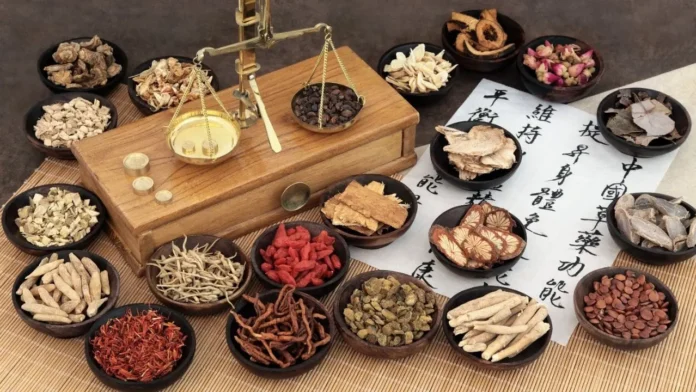
“WHO Expert Meeting on Evaluation of Traditional Chinese Medicine in the Treatment of COVID-19” was published on the WHO website on March 31. 21 international experts from 6 WHO regions participated in the meeting, and the report pointed out that Chinese medicine can effectively treat COVID-19, reduce the conversion of mild and common cases to severe disease, shorten the clearance time and improve the clinical prognosis of mild and common patients.
The report also encouraged member countries to combine the usage of the traditional Chinese medicine and Western medicine applied in China; to effectively manage the current outbreak and prepare for a possible future pandemic.
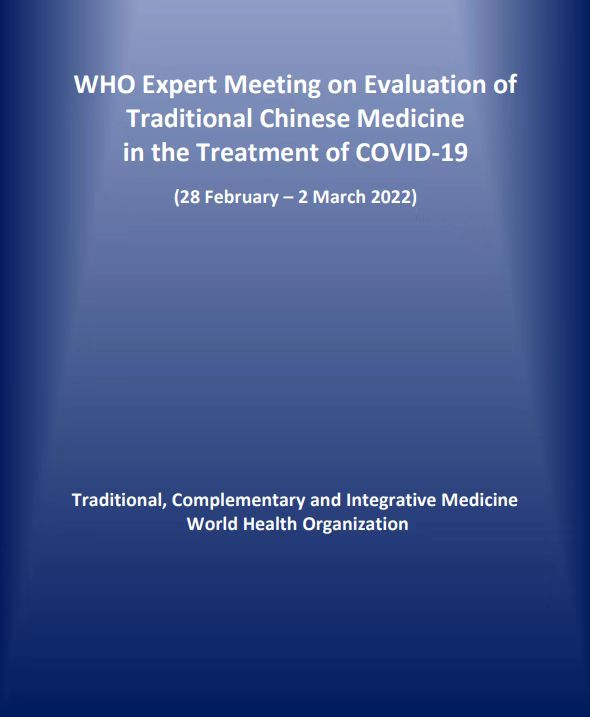
At the evaluation meeting, Yu Wenming, Director of the China National Administration of Traditional Chinese Medicine, welcomed the WHO’s continued support for traditional medicine and expressed China’s willingness to assist other WHO member countries in strengthening the role of traditional medicine in their health systems.
21 international experts jointly assess three TCM reports
Following a high-level policy dialogue between the WHO Director-General and the State Administration of Traditional Chinese Medicine of China in Geneva on 17 January 2022, WHO decided to convene an expert meeting to assess the effectiveness of traditional Chinese medicine (TCM) in the treatment of COVID-19.
On January 18, WHO Director-General Tedros tweeted, “I met with Huang Luqi, Vice Commissioner of the National Administration of Traditional Chinese Medicine and President of China Academy of Chinese Medical Sciences, to discuss the role of Traditional Chinese Medicine in improving people’s health.”
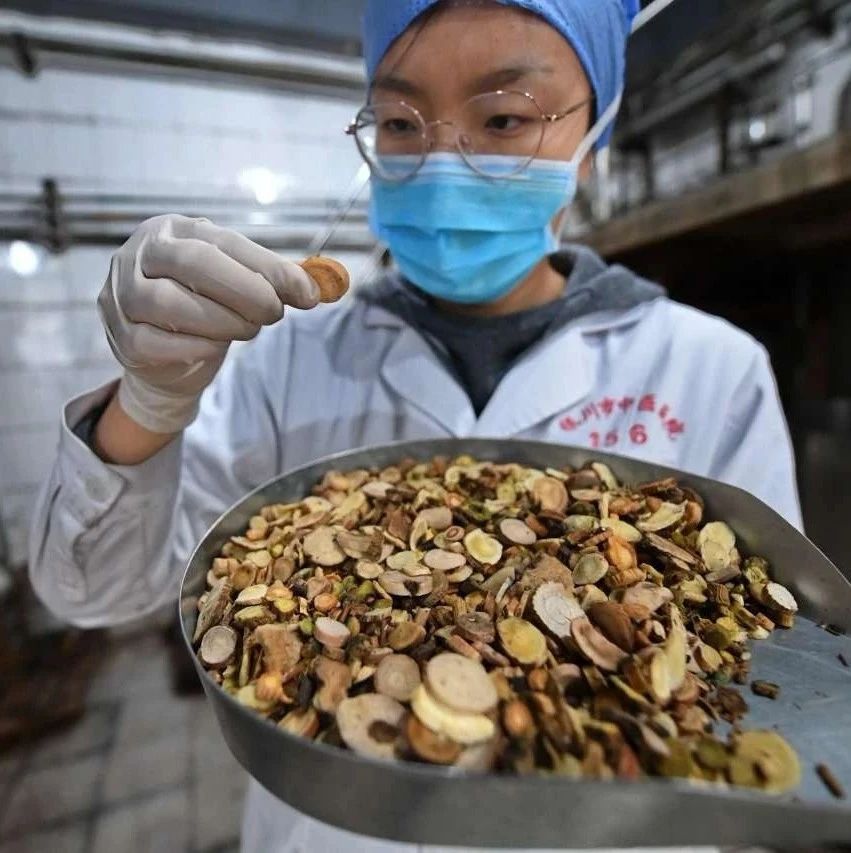
This was followed by an expert evaluation meeting on TCM for the treatment of COVID-19, held from February 28 to March 2. The 21 international experts in attendance came from 6 WHO regions, including 5 members of the WHO Expert Advisory Panels, 8 representatives of WHO collaborating centers, 3 members of the WHO International Regulatory Cooperation for Herbal Medicines (IRCH), and academicians from the Chinese Academy of Traditional Chinese Medicine. Moreover, technical staff from WHO headquarters, and regional and country offices also attended the meeting.
At the opening of the meeting, Yu Wenming said that Chinese medicine was not only effective in treating SARS but is an important part of China’s efforts to control the spread of the COVID-19 epidemic.
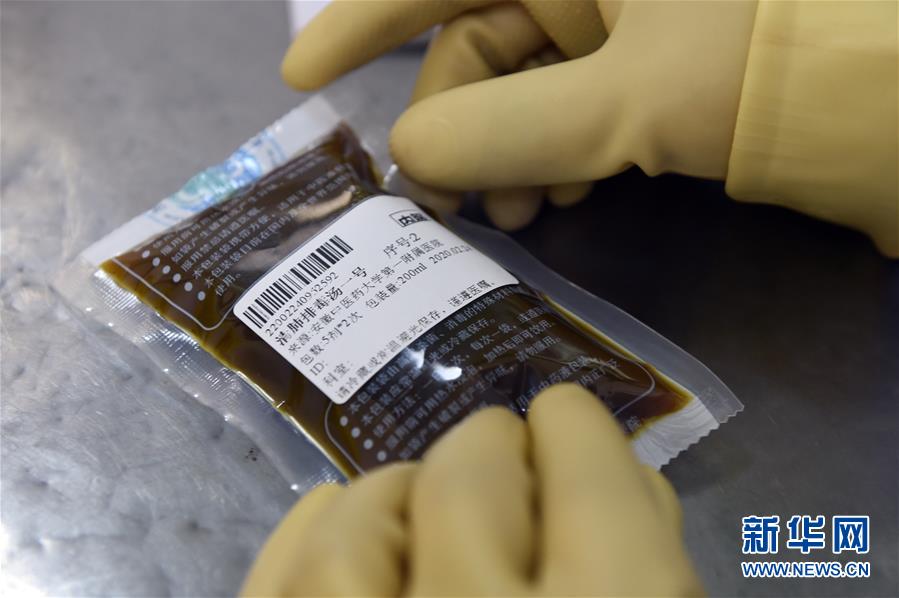
“After the outbreak, the National Administration of Traditional Chinese Medicine was the first to send TCM experts to Wuhan to carry out investigation and treatment, and to summarize and screen the ‘three medicines and three parties’ for COVID-19. Plus, these treatments are constantly being optimized to treat new mutant strains. The National Bureau will continue to optimize TCM diagnosis and treatment protocols, screen formulations, evaluate efficacy, and analyze effective formulations in an effort to scientifically explain the mechanism of efficacy,” said Yu Mingming.
Yu Mingming also expressed China’s willingness to assist other WHO member countries in strengthening the role of traditional medicine in their health systems.
The meeting evaluated three reports on TCM and COVID-19, namely clinical application, research, and evidence-based evaluation reports provided by the Chinese national expert group. The evidence-based evaluation reports focused on reported outcomes as well as 12 registered and published randomized controlled trials (RCTs).
The three reports evaluated at the meeting were “Clinical use of traditional Chinese medicine in fighting against COVID-19 in China”, “Scientific research on prevention and treatment of COVID-19 with traditional Chinese medicine”, and “Methodology applied in the selection of the randomized controlled trials”.
International experts confirm the effectiveness of TCM on COVID-19 treatment
At the evaluation meeting, Chinese experts presented the clinical research basis of the TCM report.
The experts stated that as of March 2022, 859 Chinese clinical studies of COVID-19 have been registered in the China Clinical Trials Registry, a Level 1 registry of the WHO International Clinical Trials Registry Platform, 213 of which are related to TCM.
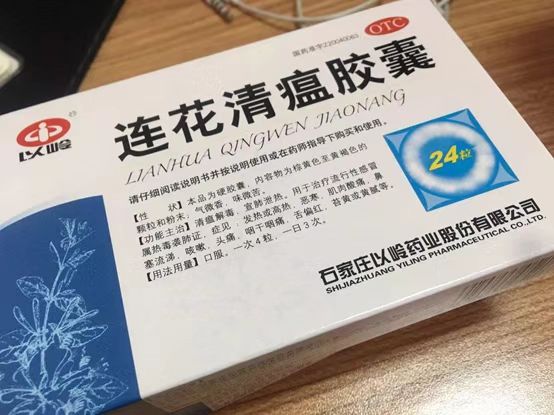
Among the studies considering mild cases, 106 studied the effect of TCM on fever, 103 evaluated the effect of TCM on cough, and 94 considered TCM and fatigue. There is also an example of a multicenter randomized controlled trial that included 284 patients from 23 hospitals in 9 provinces in China who were given Chinese herbal capsules, the Lianhua Qingwen capsule. Overall, it was reported that patients taking the drug had a shorter recovery time from symptoms compared to patients not given the herbal intervention.
21 studies showed that TCM helped to shorten the time to nucleic acid conversion; another 43 studies showed that TCM was able to reduce the proportion of non-severe patients who turned severe. Consistent with this finding, another non-blinded, cluster-randomized trial enrolling 408 lighter patients and treating them with another herbal granule reduced the likelihood that the patients would turn severe. No serious adverse events associated with herbal medicine were identified throughout the study.
After three days of meetings and discussions, the participating national and international experts formed the conclusion that: the herbal medicine included in the study was beneficial in the treatment of COVID-19, especially in light and common cases, based on clinically relevant outcome indicators; the data showed that the herbal medicine was beneficial in reducing the conversion of light and common cases to severe cases; and in light and common cases, compared with conventional treatment alone, the herbal medicine included in the study, when used as an additional intervention can reduce the time to viral clearance, time to clinical symptom relief, and length of hospital stay; also, there is encouraging evidence that early use of TCM leads to a better clinical prognosis in mild and common cases.
It was also concluded that interventions using the TCM approach included in the study alongside conventional treatment were not only well-tolerated, but also as safe as the conventional treatment alone.
Experts at the meeting made recommendations to WHO, including:
- sharing the results of this meeting with member states in a timely manner;
- encouraging member states to consider incorporating traditional medical interventions, such as TCM, into clinical management planning for COVID-19 in their health systems and regulatory frameworks;
- encouraging member states to consider the combination of Chinese and Western medicine that has been developed and applied in China;
- promoting international clinical trials to further evaluate the potential benefits and safety of TCM in treating patients with COVID-19 throughout their care.
(Source: bing, sina, Xinhuanet, WHO)



